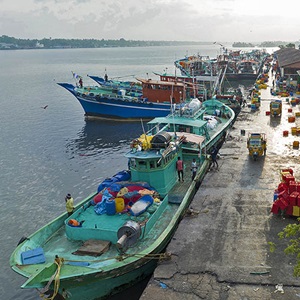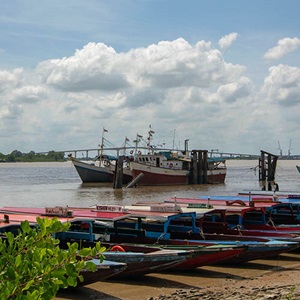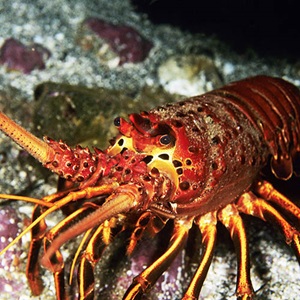The Indian deep-sea shrimp fishery is working with a PhD researcher to verify its methodologies and gear are meeting sustainability requirements.
- Determining the appropriate cod-end mesh size for reducing accidental bycatch and waste
- Producing baseline data on the biodiversity comprising the bycatch in the fishing zone
- Establishing how a novel device reduces drag and carbon emissions
- Gathering data around fuel use and carbon emissions of the deep-sea trawl fishery
Start date: November 2024
£5,000 GBP
Student Research Grant
Awardee
Megha Madhav, Kerala University of Fisheries and Ocean Science
Fishery
India Kerala deep-sea trawl shrimp fishery
Improving fishing practices though data collection
Fishing off Kerala, India, in the Arabian Sea, the deep-sea shrimp trawl fishery operates in an area of high marine biodiversity and harvests three species of shrimp: Arabian red shrimp (Aristeus alcocki), deep-sea caridean shrimp (Heterocarpus chani) and Indian nylon shrimp (Heterocarpus woodmasoni).
The fishery has been in a Fishery Improvement Project (FIP), led by the Seafood Exporters Association, since 2019. In 2021 it began working with WWF India when it was officially verified as part of the In-Transition to MSC Program (now the MSC Improvement Program) and has received two Transition Assistance Fund grants.
Previous funding was used to train fishers in the use of square mesh cod-end nets on the trawl gear. The novel device was designed to help the fishery to reduce its impact on biodiversity, the marine environment and comply with local regulations around minimum catch size.
Research outputs towards improving sustainability performance
Now, PhD candidate Megha Madhav of Kerala University of Fisheries and Ocean Science has received an OSF Student Research Grant to establish the efficacy of the cod-end bycatch reduction devices.
Working under the supervision of ICAR - Central Institute of Fisheries Technology Cochin, Madhav will use the funding to compare the cod-end device with other bycatch reduction devices to confirm its efficacy. She will also gather data and close knowledge gaps around the species likely to be found as bycatch in the fishing zones. Additionally, Madhav will conduct fuel emissions studies to demonstrate the savings made and carbon emissions reduced via low-drag cod-ends.
The findings of this funded research will make a portfolio of evidence that will contribute towards the fishery achieving its sustainability targets and help it move towards full assessment against the MSC Fisheries Standard.
Madhav aims to complete the study and share results by October 2025 and hopes they will provide a model for other tropical multi-species fisheries to define best management practices.
“The funding provides a unique opportunity to contribute tangible, science-backed solutions for more sustainable fishing practices. We can work directly with fishers and managers to demonstrate how innovative square mesh cod-ends can both protect marine ecosystems and improve fuel efficiency, showing economic and environmental benefits together.”
Related projects

Kerala deep-sea shrimp: Continued sustainability research

Suriname trawl fishery: Smartphone app to identify protected species
-500.tmb-thumb300.jpg?Status=Master&Culture=en&sfvrsn=ee59935f_1)
South Africa hake: Investigating interactions with mammals

